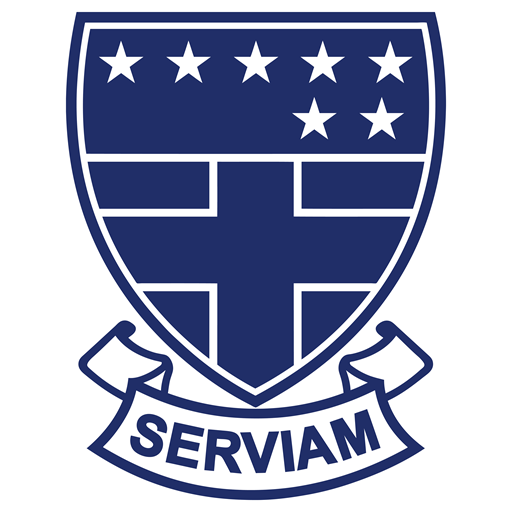Science

St Ursula’s School

Science Curriculum Intent
At St Ursula’s Convent School, our vision is to engage the natural curiosity of our students, to ignite a passion for exploring and discovering the world around them with confidence, so that they have a deeper understanding of the world we live in.
Our science curriculum at St Ursula’s teaches knowledge in the disciplinary fields of Biology, Chemistry and Physics. Alongside the sciences, students are taught the key skills of practical investigation; being able to ask a question, perform research, form and test a hypothesis, analyse data and draw conclusions. Mathematical skills in science are also taught throughout the key stages, which further develop the student’s analytical skills when working with data. We aim to inspire the girls at St Ursula’s to pursue a science-based career in the future, particularly in fields where women are in the minority. Where appropriate, we include key scientists that have been involved in discovering key scientific processes and we include a range of diverse scientists that are currently working in specific fields. We aim to provide a scientific education to our students that empowers them to go out into the world to be able to question and ask the how and the why questions. We want our students to be able to engage with how science overlaps in their everyday lives; for example, how to change a plug, making key decisions about healthcare and lifestyle choices, understanding how an energy bill is calculated or how to identify ‘bad science’ in the press. We do not want our students to just accept the status quo, we want them to empower them to be able to ask questions and challenge existing ideas to further build upon the scientific knowledge currently available.
As subject experts we recognise the contribution that Science makes to developing students’ literacy. We promote disciplinary literacy so that students can read and speak as a Scientist would. Schemes of learning set out tier 3 subject vocabulary which is developed through students’ reading of academic texts where appropriate. Key terms are highlighted in lessons and the importance of students using the correct terms is stressed, especially when naming pieces of apparatus in longer written responses and their uses.
Our SEND learners are also kept at the forefront of our curriculum. It is vital that all learners’ needs are considered, and the wonder of science and our curriculum is accessible to all. At St Ursula’s we have developed KS3 and KS4 differentiated resources at the higher and foundation tier level. These resources are shared with all members of the department to further differentiate where required based on a student’s individual needs. In addition to lesson resources, all assessments from Year 7 to 11 are differentiated into higher and foundation tier. Our learning sequences are chunked into manageable amounts to reduce the cognitive load for this group of students. Students are tiered in science which means that students are able to work at a suitable pace that enables them to have the time to process and to develop their substantive knowledge. In addition to differentiated resources, there are a few cases where in discussion with the SEND department, the student is working in class with a TA learning entry level science to further reduce cognitive load and to leave St Ursula’s feeling confident in science and being able to access the curriculum.
Our science curriculum also includes, where appropriate, key teachings of the Catholic Church. For example, when we cover human reproduction in Year 7, we include the Catholic Social Teaching principles, for example that sexual intercourse is for the purpose of procreation between a married man and woman. We also include in our curriculum, where appropriate, British Values, for example using the sexual intercourse example, we discuss that sexual intercourse doesn’t just happen between marrier men and women for the sole purpose of procreation. Both key principles featuring in our curriculum help to support and develop our student’s faith and citizenship. There are a variety of other topics where we explore science and faith, including in Year 7 Biology (Alcohol and Drugs), Year 8 Physics (The Big Bang Theory), Year 10/11 Biology (Cloning and IVF).
Key Stage 4
At St Ursula’s we deliver the AQA GCSE Biology, GCSE Chemistry and GCSE Physics courses to our triple scientists (higher ability students) in Years 9-11 and the GCSE Combined Science course to higher and foundation tiered students. Our KS4 curriculum builds upon and further develops the foundations that were built at KS3 and bridges the gap between science A-Levels. Our curriculum keeps in mind the Grade 9 grade descriptors (common across Combined Science and Biology, Chemistry and Physics single sciences) to challenge and inspire all of our learners.
- demonstrate relevant and comprehensive knowledge and understanding and apply these correctly to both familiar and unfamiliar contexts using accurate scientific terminology.
- develop accurate, logical and detailed descriptions, explanations and arguments.
- use a range of mathematical skills to perform complex, multi-step scientific calculations.
- critically analyse qualitative and quantitative data and draw logical, well-evidenced conclusions.
- critically evaluate and refine methodologies,and judge the validity of scientific conclusions.
Links to curriculum maps:
Special requirements
Lab coats
Safety goggles
Scientific calculators
Links to useful sites for KS4 students, parents and members of the public
https://connect.collins.co.uk/school/portal.aspx
http://www.aqa.org.uk/subjects/science
http://www.my-gcsescience.com/
http://www.bbc.co.uk/education/subjects/zrkw2hv
http://www.docbrown.info/
http://www.scool.co.uk/
